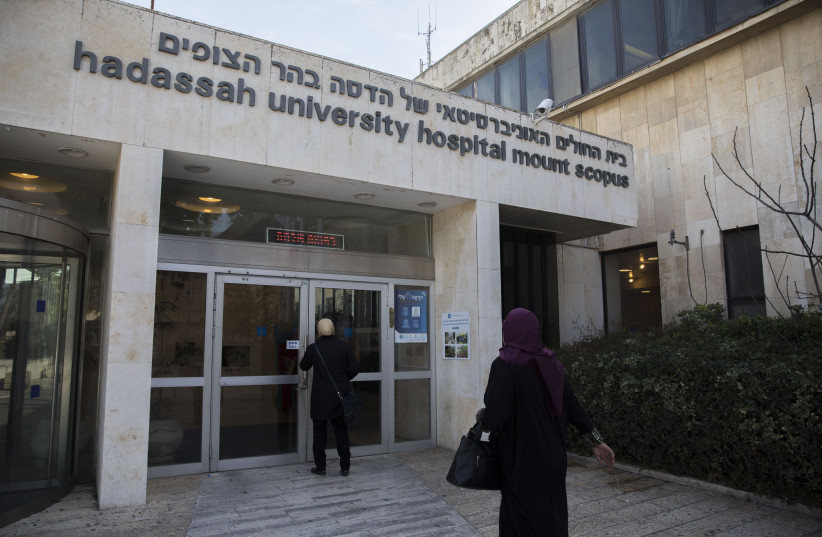
Complex complaints
Over 200 residents submitted objections to the Jerusalem Local Planning and Building Committee against the Burj Khalifa (Epstein Complex) tower project promoted by the municipality, for being a “discounting and commercialization of the heritage and memory of the Holocaust.”
The main claim is that apart from being inconsistent with the character of the city, the unusual tower, close to Yad Vashem, will overshadow the national memorial sites and cause the cheapening and commercialization of the heritage and memory of the Holocaust. It will have 42 floors, and the total height of the tower will be 200 meters, which is equivalent to 60 floors, compared to the Western Wall’s 19 meters and the Chords Bridge’s 119 meters.
For the municipality, the controversial project is “a groundbreaking plan with a unique architectural design, befitting its significant location.”
Interestingly, the alternative that was rejected proposed two towers of 30 stories each, without an observation deck and with reduced public areas.
Increased ailments
A rise in the number of flu and coronavirus cases in the city has created a tremendous burden on the emergency and internal departments at Hadassah-University Medical Center and the Shaare Zedek Medical Center.

There is still a shortage of staff due to members serving in the reserves. As a result, patients may experience poorer conditions and wait a long time until they arrive at the inpatient wards.
Game changer in Gonenim
The municipality announced that the contract with the community administration in the Katamonim (Gonenim) was terminated “due to improper conduct” but emphasized that “the residents will not be harmed.” The decision was made due to what Safra Square denounced as “the unstable situation of the corporation and its improper conduct.”
The municipality declared that a neighborhood steering committee consisting of residents and representatives of the municipality and professional bodies will be formed in the coming days, which will be responsible for the management of the neighborhood, allowing the residents to take an active part in making decisions concerning them.
The unusual decision came following a long conflict between Mayor Moshe Lion and administration chairman Yossi Saidov.
Homes in Ashtrom
The Ashtrom Kiryat Hayovel project has reached a turning point: 12 apartments were sold within a few weeks at a total cost of over NIS 29 million, with only three apartments and two penthouses remaining for sale.
Apartments and penthouses with prices starting at NIS 3.69m. and NIS 6.9m., respectively, are the only ones left for sale and immediate occupancy.
The project includes a tower with 132 units of two to five rooms, garden apartments, and penthouses. Every apartment has a panoramic view: to the west, Ein Kerem and the Jerusalem Hills; to the east, the city center and the Old City.■
A lone voice goes unheard
Sondos Alhoot’s candidacy for the city council clearly illustrated the saying “The road to hell is paved with good intentions.”
A group of local residents, most of them Left-leaning Anglos, had imagined they could manage to communicate with eastern Jerusalem’s Arab residents; to break through their hostility, indifference, suspicion, and misogynistic stereotypes and convince them to vote.
Behind the initiative was All Its Citizens, a political movement with a long-term view of joining the Knesset. It promotes Jewish-Arab ties in Israel, working with those Jewish Jerusalemites who wholeheartedly maintain that without Arab participation in the running of the city, it is not appropriate to say that Jerusalem is united.
Alhoot, a 33-year-old Arabic teacher from Nazareth, with four east Jerusalem Arab residents on her list called All Its Residents, presented her candidacy. Unfortunately, no one had ever heard of her.
A lone voice, a brave, eloquent, woman, replete with good intentions, Alhoot was eager to take up the gauntlet and enter the political arena, even without prior experience. While dedicated, she was unable to drum up a following among east Jerusalem Arabs. And so, by the close of election day late last month, Alhoot ended up with a little over 2,000 votes – most of which came from her Jewish supporters.
Following the tradition of previous city council elections, even enthusiasm such as Alhoot’s was not enough to convince the city’s Arab residents that the only effective way to influence the decision-makers at Safra Square is by casting their ballots.
Too bad.■
